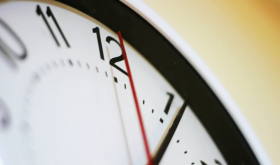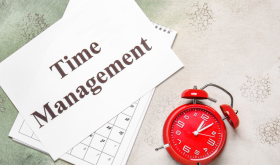Understanding The Importance of Time Tracking
Time tracking is a crucial aspect of freelancing as it allows you to monitor and manage your working hours efficiently. By understanding the importance of time tracking, you can gain valuable insights into your productivity levels and identify areas for improvement. It helps you stay accountable to yourself and your clients, ensuring that you are delivering your work on time and meeting deadlines. Moreover, accurate time tracking enables you to accurately bill your clients and maintain transparency in your freelance business.
One of the key benefits of time tracking is that it helps you analyse how you spend your time on different tasks or projects. This analysis allows you to identify which activities are consuming more time than necessary and make adjustments accordingly. By tracking your time, you can optimise your workflow, eliminate time-wasting activities, and focus on high-value tasks that contribute to your success as a freelancer.
In addition, time tracking provides you with data-driven insights into your productivity patterns. You can identify your most productive hours of the day and allocate them to important tasks that require concentration and creativity. It also helps you identify any inefficiencies or distractions that may be hindering your productivity, allowing you to make necessary changes and improve your overall efficiency.
Overall, understanding the importance of time tracking is essential for freelancers to effectively manage their time, increase productivity, and achieve their goals.
Choosing The Right Time Tracking Tools
When it comes to time tracking as a freelancer, choosing the right tools is crucial for accurate and convenient tracking. There are various time-tracking tools available in the market, each offering different features and functionalities. Here are some factors to consider when selecting the right time-tracking tools:
- User-friendly interface: Look for tools that are easy to navigate and use, allowing you to track your time effortlessly.
- Compatibility: Ensure that the time tracking tool is compatible with your devices and operating systems to ensure seamless integration.
- Automation: Consider tools that offer automation features, such as automatic time tracking or integrations with project management software, to streamline your tracking process.
- Reporting and analytics: Look for tools that provide comprehensive reports and analytics, allowing you to gain insights into your time usage and make informed decisions.
- Integration with other tools: If you use other productivity tools, such as task management or calendar apps, consider a time-tracking tool that integrates with them for better workflow management.
By carefully evaluating these factors and trying out different time-tracking tools, you can find the one that best suits your needs and enhances your time-tracking experience as a freelancer.
Setting Clear Goals and Priorities
Setting clear goals and priorities is essential for effective time tracking as a freelancer. Without clear goals, it becomes challenging to prioritise your tasks and allocate your time effectively. Here are some tips for setting clear goals and priorities:
- Define your objectives: Clearly define what you want to achieve in your freelance business, whether it’s increasing your income, expanding your client base, or improving your skills.
- Break down larger goals: Divide your larger goals into smaller, actionable tasks that can be easily tracked and accomplished within a specific timeframe.
- Prioritise tasks based on importance and urgency: Identify which tasks are most important and need immediate attention. Prioritise them over less critical tasks to ensure you are focusing on high-value activities.
- Time block your schedule: Allocate specific time blocks for different tasks or projects based on their priority. This helps you stay focused and prevents time wastage.
- Regularly review and adjust goals: Review your goals periodically and make necessary adjustments based on your progress and changing priorities.
By setting clear goals and priorities, you can align your time-tracking efforts with your overall objectives and ensure that you are maximising your productivity as a freelancer.
Establishing a Consistent Routine
Establishing a consistent routine is key to effective time tracking as a freelancer. Having a routine helps you create structure in your workday and ensures that you are utilising your time efficiently. Here are some tips for establishing a consistent routine:
- Set fixed working hours: Determine your working hours and stick to them as much as possible. This helps you maintain a healthy work-life balance and prevents overworking.
- Create a dedicated workspace: Designate a specific area in your home or office as your workspace. This helps you create a separation between work and personal life and allows you to focus better during working hours.
- Plan your day in advance: Take a few minutes at the end of each workday to plan your tasks for the next day. This helps you start your day with a clear roadmap and minimizes time wasted on deciding what to work on.
- Minimize distractions: Identify your biggest distractions and take steps to minimize them. This may include turning off notifications on your phone, using website blockers, or setting boundaries with family members or roommates.
- Take regular breaks: Schedule short breaks throughout your workday to rest and recharge. This helps you maintain your focus and productivity levels.
By establishing a consistent routine, you can create a productive work environment, develop good time management habits, and ensure that your time-tracking efforts are effective.
Analysing and Optimising Your Time Tracking Data
Analyzing and optimizing your time-tracking data is crucial for continuous improvement as a freelancer. By analyzing your data, you can identify patterns, trends, and areas for optimization. Here are some steps to analyze and optimsze your time-tracking data:
- Review your time logs: Regularly review your time logs to identify how you have been spending your time. Look for any patterns or trends that emerge.
- Identify time-wasting activities: Identify any activities that are consuming more time than necessary or are not contributing to your productivity. Find ways to eliminate or minimize these activities.
- Analyse your most productive hours: Determine your most productive hours of the day and allocate them to important tasks that require focus and creativity.
- Experiment with different techniques: Try out different time management techniques, such as the Pomodoro Technique or time blocking, and see which ones work best for you.
- Set goals for improvement: Based on your analysis, set specific goals for improving your time management and productivity. Track your progress regularly and make necessary adjustments.
By regularly analysing and optimising your time-tracking data, you can continuously improve your productivity, identify areas for growth, and achieve better work-life balance as a freelancer.









